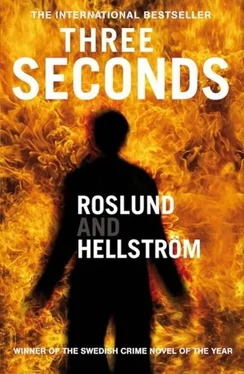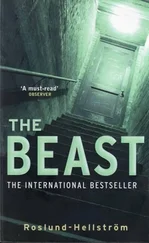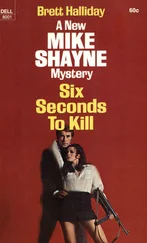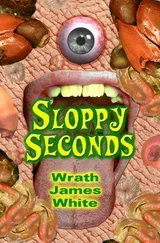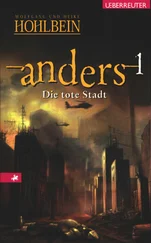Piet Hoffmann swallowed the feeling of being so totally fucking alone.
He had actually always been lonely, never had many friends as he dropped them one by one because he didn't understand the point, didn't have many relatives as he lost touch with those who hadn't dropped him first. But this was a different loneliness, one that he hadn't chosen himself.
He turned the light on in the kitchen. The table was empty, no blobs of jam and crumbs from just one more cookie, it had been wiped in circles until everything had been cleaned off. If he leaned forward he could even see the stripes from a J-doth on the shiny pine surface. They had sat there eating supper, just a few hours ago. And she had made sure that they finished their meals. He had not been there and wouldn't be part of it later either.
The vase was in the cupboard over the sink.
Twenty-five red tulips, he straightened the card, I love you, they would stand in the middle of the table where the card was visible.
He tried to put his feet down as quietly as possible on the stairs, but every tread creaked in warning and the ears that were listening would know he was near. He was frightened, not of the anger he would confront any minute now, but of the consequences.
She wasn't there.
He stood in the doorway and looked into an empty room. The bedspread was still on the bed and hadn't been touched. He continued on to Hugo's room and coughs from a throat that was only five years old and swollen. She wasn't there either.
One more room. He ran.
She was lying on the short, narrow bed snuggled close to their youngest son. Under the blanket, curled up. But she wasn't asleep, her breathing wasn't that regular.
"How are they?"
She didn't look at him.
"Have they still got a temperature?"
She didn't answer.
"I'm so sorry, I couldn't get away. I should have called, I know, I know that I should have."
Her silence. It was worse than everything else. He preferred open conflict.
"I'll look after them tomorrow. The whole day. You know that." That damn silence.
"I love you."
The stairs didn't creak as much when he went down. His jacket was hanging on the coat rack in the hall. He locked the front door behind him.
Thirty-two hours and thirty minutes left. He wouldn't sleep. Not tonight. Not tomorrow night. He would have plenty of time to do that later, locked up in five square meters for two weeks on remand, on a bunk with no TV and no newspapers and no visitors, he could lie down then and close out all this shit.
Piet Hoffmann sat in the car while the rest of the street went to sleep. He often did this, counted slowly to sixty and felt his body relaxing limb by limb.
Tomorrow.
He'd tell her everything tomorrow.
The windows in the neighboring houses that shared his suburban life went black one by one. The blue light of a TV still shone upstairs at the Samuelssons' and the Sundells'; a light that changed from yellow to red in the Nymans' cellar window, where he knew one of their teenage sons had a room. Otherwise, night had fallen. One last look at the house and the garden he could touch if he wound down the window and stuck out his hand, he was sure of it, which were now blanketed in silence and blackness, not even the small lights in the sitting room were on.
He would tell her everything tomorrow.
The car crept along the small streets as he made two phone calls; the first about a meeting at midnight at number two, the second about another meeting later at Danviksberget.
He wasn't in a rush anymore. An hour to hang around. He drove toward the city, to Soderrnalm and the area round Hornstull, where he had lived for so many years when it was still a rundown part of town that the city suits sneered at if they happened to stray there. He parked down by the waterfront on Bergsunds Strand, by the beautiful old wooden bath house that some crazy people had fought so hard to pull down a few years back and was now a hidden gem in this hip area, where women could swim on Mondays and men on Fridays. It was warm, even though night was at hand, so he took off his jacket and walked along the asphalt, with his eyes on the luminous water that reflected the headlamps of the occasional car that crept down past the flats looking for a place to park.
A rather hard park bench for ten minutes, a slow beer at Gamla Uret where the bartender, whom Hoffmann knew from late nights in another life, had a very loud laugh, a couple of articles in a forgotten evening paper, oily fingers from the bowl of peanuts at the far end of the bar.
He had frittered away the hour.
He started to walk toward Högalidsgatan 38 and Heleneborgsgatan 9, and a flat on the second floor with an uneven parquet floor.
Erik Wilson was sitting on a plastic-covered sofa when the man who now could only be Paula opened the front door and crossed the water-damaged hall floor.
"It's not too late. To pull out. You know that"
He looked at him with something that resembled warmth, which he shouldn't do but that was the way it was. An infiltrator should be an instrument, something that he and the police authorities could use for as long as it was productive or simply abandon if things got too risky.
"You're never going to be particularly well paid. You'll never get any official thanks."
With Piet though, or Paula, it was different. He had become something more. A friend.
"You've got Zofia. And the boys. I've no idea what that feels like, but… I think about it sometimes, long for it. And if I had… there's no bloody way that I'd risk it for someone who wouldn't even say thanks."
Wilson was very aware that right here, right now, he was doing something that he shouldn't. Giving a unique infiltrator an argument for backing out when the authorities needed him most.
"This time you're taking a risk that is far bigger than before. I said it yesterday in the tunnel on the way over from Rosenbad. Piet, look at me when I'm talking. I'll say it again. Look at me! The moment you've completed our mission, you'll be on Wojtek's hit list. Are you sure you understand what that means, really means?"
Nine years as an infiltrator. Piet Hoffmann looked at the plastic-covered furniture and chose a green, or possibly brown, armchair. No. He wasn't sure anymore that he did understand what it entailed or why they were in fact sitting here facing each other in a secret meeting place while his wife and children slept in a silent house. Sometimes it's just like that. Sometimes something starts and then carries on and days become months and years without you being able to reflect on it. But he remembered clearly why he said yes, and what they had said about a sentence that could instead be served with regular leave and then when he was released, a life where his criminal activity could be simplified, as long as he worked for the police they would turn a blind eye to his own criminal record, hide it away and make sure that the criminal operations unit and public prosecutor didn't bother him. It had all seemed so bloody simple. He hadn't even considered the lies, the danger of being exposed as a snitch, the lack of appreciation and protection. He didn't have a family then. He existed only for himself, and then barely.
"I'm going to finish this."
"No one will blame you if you pull out."
He'd started, and then continued. He'd learned to live for the kicks, for the adrenaline that forced his heart to explode in his chest, for the pride of knowing that he was better at this than anyone else, he who had never been best at anything.
"I'm not going to pull out."
He was addicted. He didn't know what life was like without the adrenaline, the pride.
"Well, we've talked about it openly then."
He was one of those people who had never managed to finish anything. He was going to do it this time.
Читать дальше
